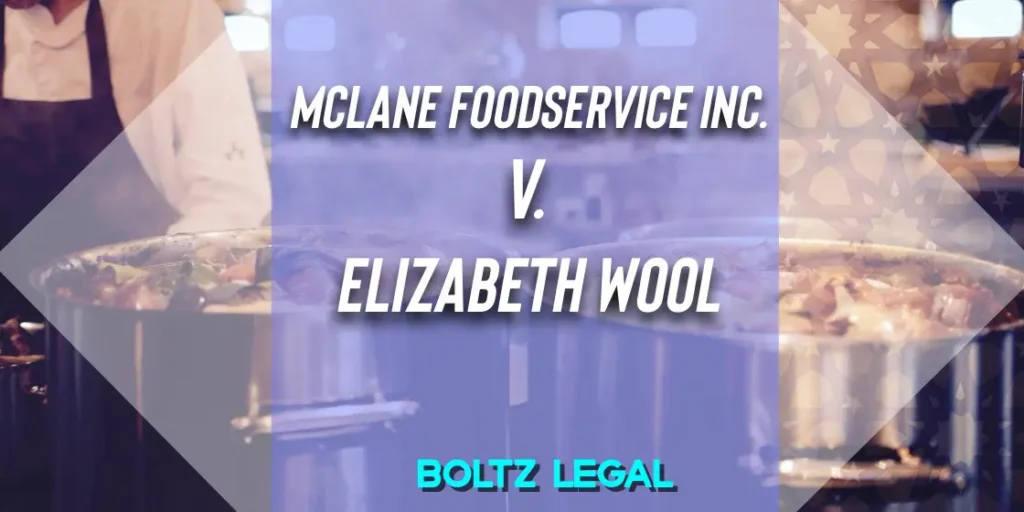Punitive Damages Dispute in Workplace Injury
49 Fla. L. Weekly D2106a
Torts – Negligence – Punitive Damages – Gross Negligence or Intentional Misconduct
3rd District Court of Appeal, September 25, 2024
Case No. 3D23-984
Judge: Jose M. Rodriguez
Background
Elizabeth Wool, an employee at a KFC restaurant in Miami, suffered injuries when a stack of frozen food boxes, delivered and stacked by Cleavar Monroe, a delivery driver for McLane Foodservice, Inc., collapsed on her while she was unstacking them. Wool filed a negligence lawsuit against McLane Foodservice and Monroe, alleging that the driver had negligently stacked the boxes too high, making them unstable. She sought to amend her complaint to include claims for punitive damages, asserting gross negligence by Monroe and vicarious liability against McLane Foodservice.
Wool’s proffer in support of her punitive damages claim included testimony from a former KFC manager, who stated that multiple complaints had been made about delivery drivers stacking the boxes too high, creating a safety hazard. The manager also testified that he had notified McLane Foodservice’s customer service department about the unsafe stacking practices, but no corrective action had been taken. The trial court found this proffer sufficient to support a claim for punitive damages and granted Wool’s motion to amend her complaint. McLane Foodservice and Monroe appealed the decision.
Appellate Court’s Analysis
The appellate court reviewed the trial court’s decision de novo, focusing on whether Wool had made a reasonable showing to support her claim for punitive damages under Florida Statute § 768.72, which requires evidence of gross negligence or intentional misconduct.
- Statutory Framework for Punitive Damages
Florida law provides that punitive damages are the exception in civil actions and are reserved for cases involving particularly egregious behavior. A plaintiff must show evidence that the defendant’s conduct was either intentional misconduct or gross negligence. Intentional misconduct requires proof that the defendant knew their actions were wrong and likely to cause injury, yet proceeded with those actions regardless. Gross negligence requires proof that the defendant’s conduct was so reckless it demonstrated a conscious disregard for the safety of others. - Wool’s Proffer and Evidence
Wool’s proffer included an affidavit from the KFC store manager, who testified that McLane Foodservice’s delivery drivers consistently stacked boxes too high, creating a safety hazard. The manager claimed to have contacted McLane’s customer service multiple times via phone and email to report the issue, but no action was taken. Wool also presented images of the accident site and McLane’s employee manual, which outlined stacking procedures followed at McLane’s own locations. However, the appellate court found that Wool’s evidence did not rise to the level necessary to support a claim for punitive damages. - Insufficient Evidence of Gross Negligence or Intentional Misconduct
The court determined that Wool’s proffer failed to demonstrate that McLane Foodservice or Monroe engaged in intentional misconduct or gross negligence. The evidence showed that while complaints had been made about the stacking practices, there was no indication that McLane or its delivery drivers were aware of a high likelihood of injury or that they intentionally ignored such risks. Moreover, there was no evidence that similar incidents had occurred at other locations or that McLane had a policy that contributed to the unsafe stacking. - No Basis for Punitive Damages Against McLane Foodservice
In addition to Wool’s failure to establish gross negligence or intentional misconduct by Monroe, the court found no basis for punitive damages against McLane Foodservice. Florida law requires that a plaintiff seeking punitive damages from an employer based on the actions of an employee must show that the employer either condoned or knowingly ignored the misconduct. Wool’s proffer did not meet this standard. While the store manager testified that he contacted McLane’s customer service, there was no evidence that McLane’s management was aware of the complaints or took any steps to ratify or condone the stacking practices.
Conclusion and Outcome
The appellate court reversed the trial court’s order allowing Wool to amend her complaint to seek punitive damages. The court found that Wool’s proffer and evidence did not establish a reasonable basis for punitive damages against either McLane Foodservice or Monroe. The case was remanded with instructions for the trial court to deny Wool’s motion to amend her complaint.
Today’s Insight:
“Injustice anywhere is a threat to justice everywhere.”

